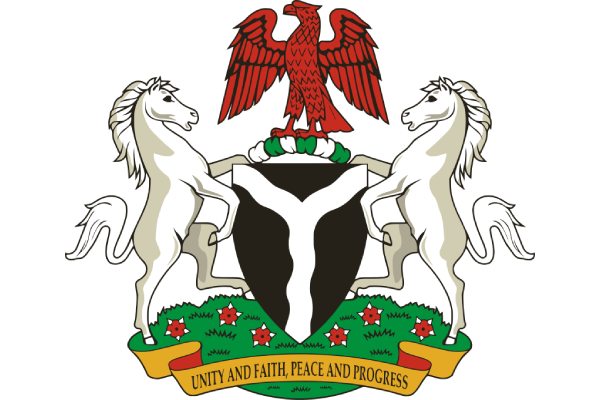Minimum Wage in Canada 2024: Complete and Updated Guide
Before making the decision to emigrate abroad, one of the main points to analyze is the economic situation of the destination country. Therefore, here we bring you everything you need to know about the minimum wage in Canada, one of the best countries to live in.
Not only will you know the minimum wage in each province and in each territory of Canada, but you will also find the next scheduled increases, the average salaries for some jobs, the salaries of students and much more!

Canada Minimum Wage: Hourly and Regulations
Each year, the Government of Canada reviews and updates the minimum wage, in conjunction with the employers’ union and other worker unions. Unlike other countries, Canada has a minimum wage that is based on the CPI (Consumer Price Index) of each province.
That means that each province has its own minimum wage. However, that does not mean that there is not a general one throughout the country. This is the federal minimum wage: it is CAD 16.65 (USD 12.27), which applies to all jobs related to services and companies that are regulated by the Government of Canada itself, such as banks, post offices and courier services. , interprovincial transportation and federal industries.
What happens if I am offered a job below minimum wage?
Regardless of whether they are foreigners or have obtained nationality, they have the same labor rights. It is very rare for an employer to offer them a salary below the minimum wage, because this is an illegal practice that is against the law.
However, it is not impossible for it to happen. If you are offered a job offer with a pay lower than the minimum wage, it is recommended that you do not accept the job. Furthermore, it is important that they report this situation to the competent authorities of the Government of Canada.
Information by Provinces and Territories
The federal minimum wage is 16.65 CAD ($12.27 USD) per hour. However, federal workers who are located in a province or territory that has a higher minimum wage than the federal minimum wage must receive a higher wage from their employers.
That only happens in British Columbia, where the minimum wage is CAD 16.75 (USD 12.35) per hour, and in Yukon, which has a base wage of CAD 16.77 (USD 12.36) per hour.
Salary in the provinces of Canada:
- Ontario: CAD 15.50 (USD 11.42) per hour
- British Columbia: CAD 16.75 (USD 12.35) per hour
- Quebec: CAD 15.25 (USD 11.24) per hour
- Alberta: CAD 15 (USD 11) per hour
- Manitoba: CAD 14.15 (USD 10.43)
- Nova Scotia: CAD 14.50 (USD 10.69) per hour
- New Brunswick: CAD 14.75 (USD 10.87) per hour
- Newfoundland and Labrador: CAD 14.50 (USD 10.69) per hour
- Prince Edward Islands: CAD 14.50 (USD 10.69) per hour
- Saskatchewan: CAD 13 (USD 10) per hour
Salary in the territories of Canada:
- Northwest Territories: CAD 15.20 (USD 11.20) per hour
- Yukon: CAD 16.77 (USD 12.36) per hour
- Nunavut : CAD 16 (USD 12) per hour
Confirmed increases in Canada minimum wages
The different provinces and territories of Canada have already confirmed some increases in their respective minimum wages, which will become effective in the coming months.
In that sense, Nova Scotia confirmed that the minimum wage will increase from CAD 14.50 (USD 10.69) to CAD 15 (USD 11).
The minimum wage will also increase in Ontario, where it will go from CAD 15.50 (USD 11.42) to CAD 16.55 (USD 12.20), and in Manitoba, where it will rise from CAD 14.15 (USD 10.43). ) to CAD 15 (USD 11).
Minimum wages in Newfoundland and Labrador, Nova Scotia and Prince Edward Islands will also increase from that date, where they will go from CAD 14.50 (USD 10.69) to CAD 15 (USD 11) per hour.
For its part, Saskatchewan, has the lowest minimum wage in Canada with CAD 13 per hour, will increase it starting October 1 to CAD 14 (USD 10), although it will remain the lowest in the country.
Salaries for different jobs in Canada
Nurse
Canada’s healthcare system is one of the best in the world and there are usually several vacancies for professionals in this sector. Among them, one of the most in-demand positions is that of a nurse.
According to the renowned Talent salary portal, the average salary of a nurse in Canada is CAD 36.87 (USD 27.18) per hour, which is equivalent to CAD 71,894 (USD 52,993) per year. New entrants earn around CAD 57,387 (USD 42,300) annually, while more experienced entrants receive around CAD 87,750 (USD 64,680) per year.
Engineer
Jobs such as engineering are among the highest paid in Canada, with an average salary of CAD 83,637 (USD 63,792) per year and about CAD 42.89 (USD 31.61) per hour, according to the Talent site. Beginners earn around CAD 64,385 (USD 47,458) annually, while more experienced ones can earn up to CAD 122,028 (USD 89,946) per year.
Programmer
There are more and more jobs related to technology. In that sense, the programmer position is one of the most in-demand in Canada. On average, the average salary for a programmer in Canada is CAD 61,528 (USD 46,933) per year, which is CAD 31.55 (USD 23.26) per hour. Those just starting out will have a salary close to CAD 48,750 (USD 35,933) per year, while the most experienced will receive around CAD 85,341 (USD 62,904) per year.
Waiter
Finding work as a waiter or waiter in Canada is not difficult at all, since it is a position with a lot of demand. Employers typically offer a minimum wage, around CAD 2,488 (USD 1,834) per month, although it depends on the province or territory where they work.
The advantage of this job is that, in addition to the salary, they will be able to earn extra money with tips! In addition, it will help them practice their English every day.
Delivery man
Jobs as a delivery driver are very easy to get and usually have flexible hours. In addition, they will be able to have fun exploring the city while discovering several new places. With this position they will earn a minimum salary of around CAD 2,488 (USD 1,834) per month, but they will also be able to make a little extra money with tips.
Minimum salary for students in Canada
The minimum wage for students in Canada is usually the same as that applicable to all workers. However, some provinces and territories have a lower minimum wage for students, such as Ontario: there the minimum wage is CAD 15.50 (USD 11.42), while for students it is CAD 14.60 (USD 10.76).
Meanwhile, other provinces and territories offer a lower minimum wage to students only if they are under 18 years of age. That is the case in Alberta: the minimum wage is CAD 15 (USD 11) per hour, but for students under 18 years old it is CAD 13 (USD 10).
Each province and territory specifies on its official website the current minimum wage and how it affects students.
If you are going to study in Canada and want to work, you will have to pay attention to the different limitations of the visa with which you travel. However, the Government of Canada announced last year that all students authorized to work will be able to do so for 40 hours a week, instead of the established 20 hours a week.
Apart from that announcement, we explain what the regulations are usually like and how they will continue from January 1, 2024. For example, the Career Program (Co-Op courses) are dedicated specifically for those looking to study and work in Canada. They last a year and are usually divided into two parts. In the first six months they will have classes in the morning and will be allowed to work up to 20 hours per week.
In the remaining six months, they will leave the theoretical part and have internships, which will be related to their studies and which are usually paid.
On the other hand, a student visa will allow them to legally work up to 20 hours per week during their study time and up to 40 hours per week during the vacation period.
The cost of living in Canada: basic monthly expenses to consider
Accommodation expenses in Canada
One of the main points to take into account is accommodation, which will demand the highest percentage of monthly money. There is no single option, but there are different options for choosing accommodation while living in Canada:
On Airbnb it is possible to find private rooms from CAD 320 (USD 236) per week, while houses or cabins cost more than CAD 95 (USD 70) per night.
On the other hand, renting a bed in a hostel is one of the best options to adapt to the city during the first days. Prices are around CAD 50 (USD 37) per night in downtown Vancouver.
If you don’t mind sharing an apartment with another person, a room in a shared apartment is one of the best options. In the city center, the cost is around CAD 1,100 (USD 811) per month, while in the outskirts it is possible to get from CAD 650 (USD 479).
One of the cheapest options is the Homestay with Family (room rental), since you can rent a room for CAD 750 (USD 553) per month with a shared bathroom and access to the kitchen.
Food expenses in Canada
Aside from accommodation, it is also important to calculate the costs of purchasing food, as well as hygiene and cleaning items. Depending on the area and the location where you buy, from CAD 350 (USD 258) to CAD 500 (USD 369) per month will be needed to cover these needs.
The cheapest supermarkets in Canada are No frills, Walmart, Save on Foods, T&T supermarket and Real Canadian Superstore.
Transportation expenses in Canada
Vancouver boasts a transportation network that operates seamlessly 24 hours a day. This is the Translink-Skytrain system and, to start using it, the first thing you have to do is buy the Compass Card, which will give you access to the bus and metro.
It is possible to get it at drugstores such as London Drugs or Shopers, as well as at tube stations. You can pay for a monthly plan or pay per trip.
- Monthly subscription: Zone 1 CAD 102.55 (USD 75.59) and Zone 2 CAD 137.10 (USD 101.06).
- Payment per trip: Zone 1 CAD 3.10 (USD 2.28) and Zone 2 CAD 4.45 (USD 3.28).
Cost of living in Canada
In order to calculate an approximation of the cost of living in Canada, it is necessary to take into account different types of expenses, such as accommodation, food and transportation, among others. As the numbers vary a little in each city, we will use Vancouver as a base.
To these basic expenses, you must also add extra expenses such as the cell phone plan. The Freedom company, one of the cheapest on the market, offers plans starting at CAD 50 (USD 37) per month. It could also include the gym, where they charge an approximate monthly fee of CAD 53 (USD 39), and meals in restaurants, which are around CAD 20 (USD 15).
Therefore, we estimate that you will need around CAD 1500 (USD 1,106) per month to live in Canada. Obviously, this is an approximate value, which depends on the type of life each person leads.
Canada Minimum Wage FAQ
Which provinces and territories in Canada have the best minimum wages?
The highest minimum wage in all of Canada is found in Yukon (CAD 16.77 per hour), one of the least populated territories in Canada. Precisely, it seeks to encourage foreigners to go to that place, where there is a lack of workers.
British Columbia is close behind, with CAD 16.75 (USD 12.35) per hour. The podium is completed by Nunavut, the least populated entity in Canada, with a salary of CAD 16 (USD 12) per hour.
How much money does it take to live in Canada?
As we already told you, the approximate cost of living to live in Canada is CAD 1,500 (USD 1,106) per month, taking into account food, accommodation, transportation and extra expenses. However, this is an approximate value that depends on several factors, such as the city in which they live and the pace of life they lead.
How much can you save in Canada?
As we already told you, each province and each territory of Canada has its own minimum wage. To calculate how much you can save in Canada, we will use the federal minimum wage as a base, which is CAD 16.65 (USD 12.27).
That way, if they get a job working eight hours a day with two days off (40 hours a week), the approximate salary they will receive per month will be CAD 2,664 (USD 1,964). Taxes of approximately 14.8% must be subtracted from that, so the net salary will be CAD 2,270 (USD 1,673).
Taking into account that average salary of CAD 2,270 (USD 1,673) and subtracting the CAD 1,500 (USD 1,106) required to live per month, we obtain a savings capacity of CAD 770 (USD 568) per month.
If you have reached the end of this article, you already know everything you need to know about the minimum wage in Canada, both at the federal level and in each province and each territory separately.



![10 Best Universities to Study Marketing in Canada [2024] 5 10 Best Universities to Study Marketing in Canada](https://allroundgist.com/wp-content/uploads/2024/01/best-universities-to-study-marketing-in-canada_1.jpg)



В мире азарта, где любой площадка норовит зацепить заверениями простых джекпотов, рейтинг российских интернет казино
становится именно той путеводителем, что ведет сквозь дебри рисков. Для профи да дебютантов, что устал из-за пустых обещаний, он помощник, дабы почувствовать реальную rtp, как вес ценной монеты у пальцах. Минус пустой болтовни, лишь проверенные площадки, в которых отдача не только цифра, но ощутимая фортуна.Собрано по яндексовых запросов, словно паутина, что вылавливает топовые горячие веяния на рунете. В нём нет места для стандартных трюков, каждый пункт как карта на покере, там обман проявляется немедленно. Профи видят: в стране стиль речи на сарказмом, в котором ирония притворяется как намёк, даёт обойти рисков.На https://www.youtube.com/@Don8Play/posts данный список лежит будто раскрытая колода, приготовленный для раздаче. Посмотри, когда желаешь ощутить пульс подлинной азарта, обходя обмана и провалов. Для что любит ощущение выигрыша, он будто взять карты в руках, вместо пялиться по экран.
https://t.me/s/officials_pokerdom/4092
Really enjoyed this article. Your perspective is very refreshing.
Just thought I’d share something that could benefit website owners. We recently launched a super simple smart lead chatbot that supports capturing website leads, customer care, and even sales—on autopilot.
It’s a lightweight no-code chatbot widget that installs on your website in minutes—perfect for non-techies. This chatbot for website runs 24/7 and helps turn site visitors into real leads—without extra work from your team.
You can also use it as a customer service chatbot, a interactive sales rep, and it connects with Messenger chatbot. Plus, you can try our free chatbot for website instantly on our homepage.
Take a look here:
https://chatbotforleads.blogspot.com/
With nearly 30 years of experience in hospitality, we’ve built this tool to be one of the most high-converting resources for anyone ready to grow.
So if you’re ready to engage visitors automatically or just want a smart lead funnel chatbot that simply works—this could be the perfect fit.
Would love your feedback if you try it!
Really enjoyed this article. Your perspective is very refreshing.
Just thought I’d add a quick note that could help small business owners. We recently launched a super simple automated chatbot assistant that supports capturing website leads, customer care, and even sales—on autopilot.
It’s a lightweight chatbot HTML code that installs on your website in minutes—zero tech experience required. This chatbot for small business runs 24/7 and helps turn site visitors into real leads—without extra work from your team.
You can also use it as a customer service chatbot, a popup chatbot assistant, and it connects with social media chat integrations. Plus, you can try our free chatbot for website instantly on our homepage.
Take a look here:
https://chatbotforleads.blogspot.com/
With nearly 30 years of experience in sales coaching, we’ve built this tool to be one of the most practical resources for anyone ready to grow.
So if you’re ready to capture more leads or just want a smart email capture chatbot that simply works—this could be the perfect fit.
Thanks for checking it out!
Really enjoyed this article. Your perspective is very refreshing.
Just thought I’d share something that could benefit website owners. We recently launched a super simple AI chatbot that supports capturing website leads, customer care, and even sales—on autopilot.
It’s a lightweight no-code chatbot widget that installs on your website in minutes—no coding needed. This chatbot for website runs 24/7 and helps turn site visitors into real leads—without extra work from your team.
You can also use it as a customer service chatbot, a popup chatbot assistant, and it connects with WhatsApp chatbot. Plus, you can try our free chatbot for website instantly on our homepage.
Take a look here:
https://chatbotforleads.blogspot.com/
With nearly 30 years of experience in marketing, we’ve built this tool to be one of the most high-converting resources for anyone ready to grow.
So if you’re ready to boost conversions or just want a smart lead funnel chatbot that simply works—this could be the perfect fit.
Feel free to test it out and share your thoughts!
buy tiktok ads account https://tiktok-ads-account-buy.org
buy tiktok business account https://buy-tiktok-ads-account.org
facebook bm buy https://buy-business-manager-accounts.org/
verified business manager for sale https://verified-business-manager-for-sale.org
buy facebook business manager verified https://buy-bm.org/
buy fb business manager https://buy-business-manager-verified.org/
buy business manager account business manager for sale
business manager for sale buy-verified-business-manager.org
buy facebook business manager buy-verified-business-manager-account.org
facebook business manager buy https://buy-business-manager-acc.org
buy fb business manager https://buy-bm-account.org/
buy verified google ads accounts google ads account buy
buy verified bm buy-business-manager.org
buy verified google ads accounts https://ads-agency-account-buy.click
google ads account for sale buy google ads account
buy adwords account https://buy-ads-agency-account.top
buy google ad account https://buy-account-ads.work
buy aged google ads accounts https://buy-ads-invoice-account.top
google ads account buy https://ads-account-buy.work
buy google ads threshold accounts old google ads account for sale
fb accounts for sale https://buy-accounts.click
buy google ads account buy aged google ads account
buy verified google ads account https://buy-ads-account.top/
buy facebook profiles buy ad account facebook
Этот увлекательный информационный материал подарит вам массу новых знаний и ярких эмоций. Мы собрали для вас интересные факты и сведения, которые обогатят ваш опыт. Откройте для себя увлекательный мир информации и насладитесь процессом изучения!
Ознакомиться с деталями – https://medalkoblog.ru/
facebook ad account buy buy a facebook ad account
facebook ad accounts for sale https://ad-account-for-sale.top
buy fb ad account facebook accounts for sale
buy fb ad account buy facebook ad accounts
buy aged fb account https://buy-ads-account.click
facebook ad account for sale https://buy-ad-account.top
buy facebook account for ads https://buy-ad-accounts.click
buy fb ad account buy facebook old accounts
маркетплейс аккаунтов https://kupit-akkaunt.online
маркетплейс аккаунтов https://akkaunty-dlya-prodazhi.pro
купить аккаунт online-akkaunty-magazin.xyz
продать аккаунт маркетплейсов аккаунтов
купить аккаунт kupit-akkaunty-market.xyz
маркетплейс аккаунтов https://akkaunty-market.live/
магазин аккаунтов https://akkaunt-magazin.online
магазин аккаунтов kupit-akkaunt.xyz
продажа аккаунтов https://rynok-akkauntov.top
продажа аккаунтов akkaunty-na-prodazhu.pro
accounts market https://accounts-marketplace-best.pro/
website for selling accounts account marketplace
accounts for sale https://buy-accounts.live/
gaming account marketplace https://social-accounts-marketplace.live
account store https://buy-accounts-shop.pro
database of accounts for sale https://buy-accounts.space
account store account market
account acquisition https://accounts-marketplace.live
accounts marketplace https://social-accounts-marketplaces.live/
profitable account sales https://buy-best-accounts.org/
website for buying accounts buy accounts
account exchange accounts marketplace
buy accounts account purchase
accounts for sale account market
buy pre-made account database of accounts for sale
marketplace for ready-made accounts account marketplace
buy accounts profitable account sales
buy account buy pre-made account
account selling platform account selling service
account trading platform accounts for sale
buy account buy account
account exchange sell pre-made account
accounts market account selling service
sell accounts account purchase
find accounts for sale verified accounts for sale
buy accounts account exchange
account buying service database of accounts for sale
social media account marketplace accounts-buy.org
account exchange secure account sales
verified accounts for sale online account store
account trading service account purchase
website for selling accounts secure account sales
accounts marketplace find accounts for sale
account exchange account trading
secure account purchasing platform account sale
account trading https://accountsmarketbest.com/
accounts market account marketplace
account buying platform secure account purchasing platform
account acquisition gaming account marketplace
buy accounts buy pre-made account
Account exchange Account Selling Platform
Account Purchase Account exchange
Verified Accounts for Sale Account Trading Service
Secure Account Sales https://socialmediaaccountsshop.com/
Account Trading Marketplace for Ready-Made Accounts
Buy Account Sell accounts
Guaranteed Accounts Account Buying Platform
Profitable Account Sales Buy Account
Accounts for Sale Online Account Store
Secure Account Sales Buy and Sell Accounts
Secure Account Sales Account Buying Service
купить аккаунт с прокачкой https://pokupka-akkauntov-online.ru/
покупка аккаунтов перепродажа аккаунтов
гарантия при продаже аккаунтов перепродажа аккаунтов
маркетплейс аккаунтов https://ploshadka-prodazha-akkauntov.ru
перепродажа аккаунтов продажа аккаунтов соцсетей
магазин аккаунтов социальных сетей маркетплейс аккаунтов соцсетей
платформа для покупки аккаунтов маркетплейс аккаунтов